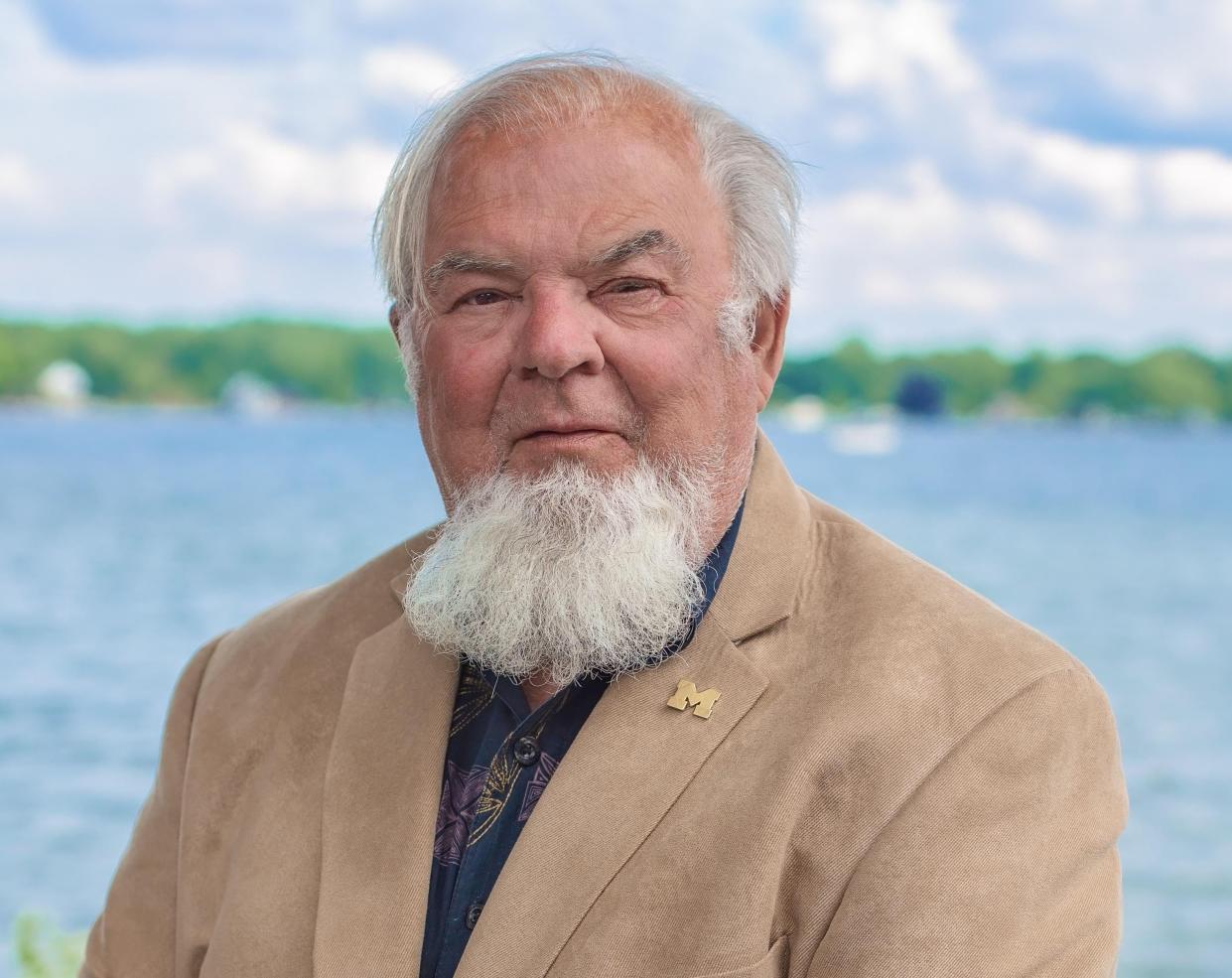James W. Pfister: Had John F. Kennedy lived: A speculation

- Oops!Something went wrong.Please try again later.
News of the release of materials on the John F. Kennedy assassination sparked memories of the event and thoughts of what might have been.
I remember when JFK was killed. I was a student at the University of Michigan studying in the basement study room of the Allen-Rumsey House. A maintenance man rushed in and said, with tears, the president has been shot. It was confirmed that he died. We lost part of our hearts that day, because we were a close country. As some have said, we lost our innocence. Then, we lost our domestic peace under the presidency of JFK’s successor, Lyndon Baines Johnson.
Believing in the strategic hamlet program, I don’t believe JFK would have sent 549,000 troops into Vietnam as LBJ did, with about 30,000 killed there during his time, at tremendous financial cost. As a believer in international law, I don’t believe JFK would have bombed North Vietnam in violation of the self-defense provision, Article 51, of the United Nations Charter. He would not have entered full-blown into a civil war, which had been fought for centuries, off and on, known by anybody who had actually studied Vietnamese history. We lost a scholar in JFK, and got a simple man in LBJ. LBJ imposed the Cold War theory over Vietnam. LBJ’s approach was naive and caused a severe antiwar protest. The antiwar movement, its violence and its rejection of governmental legitimacy changed America.
LBJ had faith in the use of force and was heavily influenced by his military advisers. He assumed it was communist aggression. At that time, a president could make substantial decisions on his own in non-emergency situations. There was the Joint Resolution of Congress of 1964, but it had insufficient standards. This was before the War Powers Resolution of 1973, which would have required more specific congressional authorization.
One also wonders what JFK would have done in the civil rights movement. I believe he would have sold it better to the American people. LBJ was not an effective communicator. Also, I believe JFK was more likely to have gone slower on civil rights to build consensus. Although JFK was the first president to “forcefully (recognize) the moral injustice of all racial discrimination (and) his moral obligation to remove it,” he proceeded to be “as little divisive as possible,” relying on “reason and reconciliation,” according to Theodore C. Sorensen, "Kennedy," 1965. Contrast LBJ: “…Johnson knew what he wanted to do about civil rights. From the moment he assumed the presidency, he saw a compelling need to drive Kennedy’s bill through Congress with no major compromises that would weaken the law,” according to Robert Dallek, "Flawed Giant," 1998; LBJ said privately to Sen. Richard Russell, a segregationist, “‘Dick, you’ve got to get out of my way. I’m going to run over you. I don’t intend to cavil or compromise.’.”
The Civil Rights Act of 1964, done during the LBJ presidency, was a comprehensive act done under the Commerce Clause; it reached every nook and cranny of the country (Justice Hugo Black in dissent, Daniel v. Paul, 1969). I believe JFK would have compromised to build a consensus. The failure to build consensus produced divisiveness in our society, including the violence of riots and the extremist presidential candidacy of George Wallace.
Richard Nixon was elected president in 1968. The Vietnam War was put into the context of detente, with a negotiated U.S. withdrawal in January 1973. Civil rights became more normalized. Nixon wrote in "RN," 1978: “When I came into office in 1969 … black Americans appeared to be more dissatisfied with their lot at the end of the 1960s than they were at the beginning, and tensions between black and white had never been higher. … In forming my policies, I tried to strike a moderate balance.” This was more the JFK approach.
Of course, we will never know what JFK would have done. But I believe the escalated Vietnam War would not have occurred and the civil rights process would have been more peaceful. As John Greenleaf Whittier wrote: “For all sad words of tongue and pen, The saddest are these, ‘It might have been.’”
James W. Pfister, J.D. University of Toledo, Ph.D. University of Michigan (political science), retired after 46 years in the Political Science Department at Eastern Michigan University. He lives at Devils Lake and can be reached at jpfister@emich.edu.
This article originally appeared on The Daily Telegram: James Pfister: Had John F. Kennedy lived: A speculation

